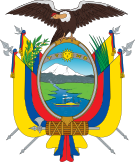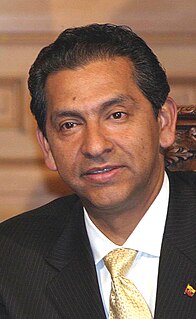
The politics of Ecuador are multi-party. The central government polity is a four-yearly elected presidential, unicameral representative democracy. The President of Ecuador is head of state and head of government on a multi-party system, leading a cabinet with further executive power. Legislative power is not limited to the National Assembly as it may to a lesser degree be exercised by the executive which consists of the President convening an appointed executive cabinet. Subsequent acts of the National Assembly are supreme over Executive Orders where sufficient votes have been cast by the legislators. The judiciary is independent of the executive and the legislature.There is also constitutional republic
In political science, a constitutional crisis is a problem or conflict in the function of a government that the political constitution or other fundamental governing law is perceived to be unable to resolve. There are several variations to this definition. For instance, one describes it as the crisis that arises out of the failure, or at least a strong risk of failure, of a constitution to perform its central functions. The crisis may arise from a variety of possible causes. For example, a government may want to pass a law contrary to its constitution; the constitution may fail to provide a clear answer for a specific situation; the constitution may be clear but it may be politically infeasible to follow it; the government institutions themselves may falter or fail to live up to what the law prescribes them to be; or officials in the government may justify avoiding dealing with a serious problem based on narrow interpretations of the law. Specific examples include the South African Coloured vote constitutional crisis in the 1950s, the secession of the southern U.S. states in 1860 and 1861, the controversial dismissal of the Australian Federal government in 1975 and the 2007 Ukrainian crisis.

The Supreme Tribunal of Justice is the highest court of law in the Bolivarian Republic of Venezuela and is the head of the judicial branch. As the independence of the Venezuelan judiciary under the regime of Nicolas Maduro is questioned, there have recently been many disputes to whether this court is legitimate.

The Constitution of Austria is the body of all constitutional law of the Republic of Austria on the federal level. It is split up over many different acts. Its centerpiece is the Federal Constitutional Law (Bundes-Verfassungsgesetz), which includes the most important federal constitutional provisions.

The Constitution of Colombia, better known as the Constitution of 1991, is the current governing document of the Republic of Colombia. Promulgated on July 4, 1991, it replaced the Constitution of 1886. It is Colombia's ninth constitution since 1830. See a timeline of all previous constitutions and amendments here. It has recently been called the Constitution of Rights.
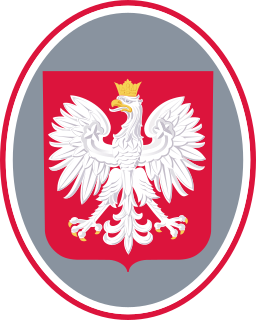
The Constitutional Tribunal is the constitutional court of the Republic of Poland, a judicial body established to resolve disputes on the constitutionality of the activities of state institutions; its main task is to supervise the compliance of statutory law with the Constitution of the Republic of Poland. It was established on the 26 March 1982 by the communist government of the People's Republic of Poland after the introduction of martial law, an attempt to crush political opposition.

The Patriotic Society Party, formerly the January 21 Patriotic Society is a populist and personalist political party in Ecuador, led by former army colonel Lucio Gutiérrez. 21 January refers to the date of the 2000 Ecuadorean coup d'état.
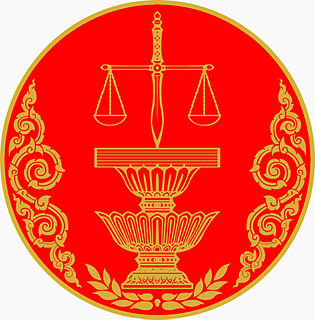
The Constitutional Court is an independent Thai court founded under the 1997 Constitution with jurisdiction over the constitutionality of parliamentary acts, royal decrees, draft legislation, as well as the appointment and removal of public officials and issues regarding political parties. The current court was established by the 2007 Constitution and is part of the judicial branch of the Thai national government.
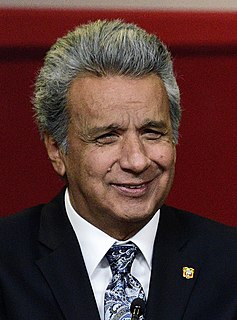
Lenín Boltaire Moreno Garcés is an Ecuadorian politician who is the President of Ecuador, in office since 2017. He was Vice President from 2007 to 2013, serving under President Rafael Correa.

A constitutional referendum was held in Bolivia on 25 January 2009, postponed from the initially planned dates of 4 May 2008 and then 7 December 2008. Drafted by the Constituent Assembly in 2007, the new constitution was approved in the referendum according to an exit poll by Ipsos Apoyo for La Razón and ATB, a Bolivian television network. Furthermore, it required early elections to be held on 6 December 2009.
The political crisis in Ukraine lasted from April to June 2007 was part of political stand off between coalition and opposition factions of Verkhovna Rada that led to the unscheduled Ukrainian parliamentary election, 2007. It started on 2 April 2007 as a culmination of long lasting crisis and degradation of the parliamentary coalition when the President of Ukraine attempted to dissolve the parliament. The following day, in light of impending political unrest, the United Nations Resident Coordinator, Francis Martin O'Donnell following an earlier call to deepen democracy and liberalize the economy, exceptionally issued an advisory statement of principles on behalf of the Country Team.
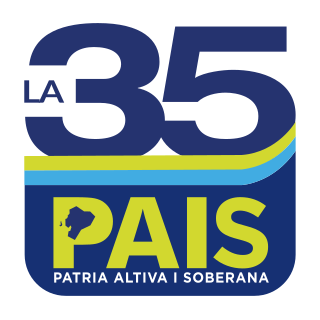
PAIS Alliance is an Ecuadorian center-left social democratic political party.
The Ecuadorian Constituent Assembly was a 2007–2008 constitutional assembly in Ecuador, which drafted the 2008 Constitution of Ecuador, approved via the Ecuadorian constitutional referendum, 2008.

The Constitution of Ecuador is the supreme law of Ecuador. The current constitution has been in place since 2008. It is the country's 20th constitution.
Marc Lemire is a Canadian white nationalist. He works closely with leader Paul Fromm, and is the webmaster of the Hamilton, Ontario-based Freedom-Site which he began in 1996. He has been called a "bigot" by Jonathan Kay of the National Post. Formerly of Toronto and now living in Hamilton, Lemire was the last president of the Heritage Front organization from January 1, 2001 until the organization folded around 2005.
The cuarta urna or fourth ballot box referendum was a plan by Honduran president Manuel Zelaya to run a non-binding referendum to consult the public regarding the administration of a second, binding referendum to convoke a constitutional assembly. The referendum was planned to run concurrently with the November 2009 presidential, congressional, and mayoral elections. Some Hondurans opposed the plan, including many politicians from the two largest parties. When Zelaya pushed ahead with plans for this referendum on whether to include a fourth ballot box, the Supreme Court issued a warrant for his arrest and the army expelled him from the country in a June 28 coup d'etat, precipitating the 2009 Honduran constitutional crisis.

The 2010 Ecuador crisis took place on 30 September 2010, when elements of the National Police blockaded highways, occupied the National Parliament, blocked the Mariscal Sucre International Airport in Quito and the José Joaquín de Olmedo International Airport in Guayaquil, and took over TV Ecuador's station, in what they claimed was a strike to oppose a government-sponsored law that supposedly reduced their benefits. Unrest and looting was reported in seven provincial capitals of the country due to the lack of law enforcement.

A fourteen-part referendum was held in Ecuador on 25 May 1997. Voters were asked whether they approved of the dismissal of President Abdalá Bucaram by the National Congress, the appointment of Fabián Alarcón as interim President for twelve months, the calling of a Constitutional Assembly, whether a Constitutional Assembly should be elected by direct elections or by appointment, whether spending limits should be introduced for election campaigns, whether voters should be able to modify electoral lists, whether National Assembly elections should be held alongside the first or second round of presidential elections, whether political parties that fail to cross the 5% threshold in two consecutive elections should be deregistered, whether the Supreme Electoral Tribunal (TSE) should reflect the political makeup of the National Congress, whether the National Congress should appoint managers of state-owned companies with a two-thirds majority, reforms to the justice system, allowing the Supreme Court to appoint judicial authority member, whether elected officials who commit a criminal offence should be removed from office, and whether the National Assembly should implement the 13 proposals. All eleven proposals were approved by voters.
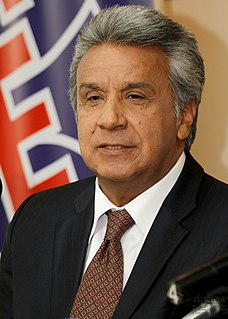
General elections were held in Ecuador on 19 February 2017 alongside a referendum on tax havens. Voters elected a new President and National Assembly. Incumbent President Rafael Correa of the PAIS Alliance was not eligible for re-election, having served two terms. In the first round of the presidential elections, PAIS Alliance candidate Lenín Moreno received 39% of the vote. Although he was more than 10% ahead of his nearest rival, Guillermo Lasso of the Creating Opportunities party, Moreno was just short of the 40% threshold required to avoid a run-off. As a result, a second round was held on 2 April. In the second round Moreno was elected President with 51.16% of the vote.
